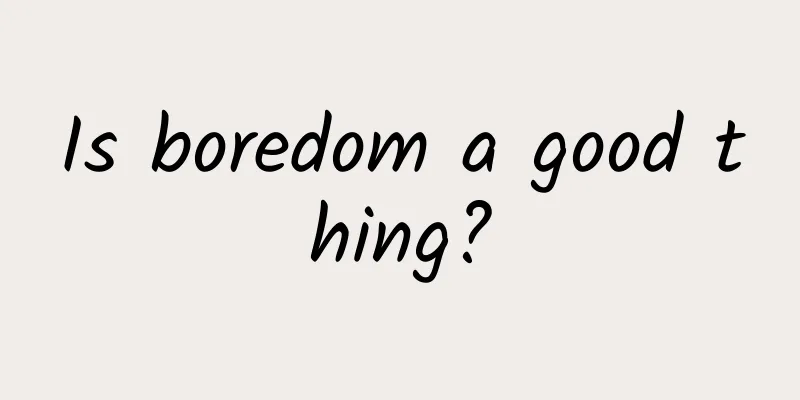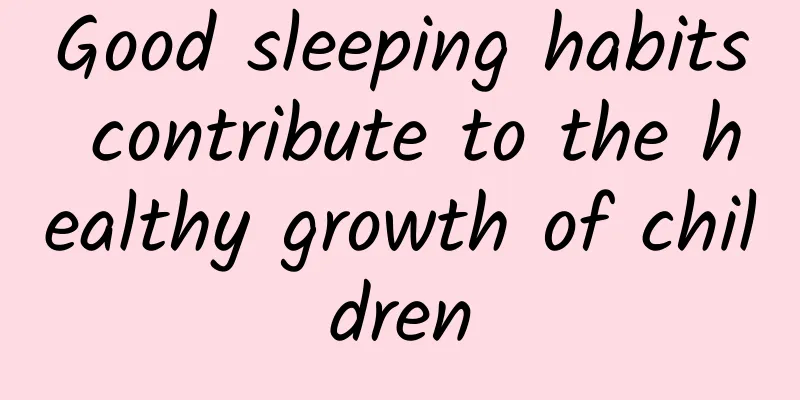Is boredom a good thing?

|
Leviathan Press: Poet Brodsky once wrote an article titled "In Praise of Boredom". "The idea of innovation itself illustrates the monotony of standard reality, and life is no different. Its medium - no, idiom - is monotony." In the poet's view, boredom is "the invasion of time into your own worldview", which gives rise to the realization of individual insignificance. This is also the reason to pay tribute to boredom. In fact, every time we feel bored, it is the perfect time to observe ourselves - what do I want? How can I achieve it? Can that goal help me fight against the invasion of time? Perhaps, when you think about it, the answer has already appeared. I remember my first experience of being bored as vividly as I remember my first kiss. I think I was at least seven, but the fact that my mom told me I was three or four means that being bored is my first memory. My sister and I were sitting in our car, parked outside my mom's friend's house, and my mom had gone into her friend's house and disappeared from sight. Fifteen minutes earlier, she had said, "I'll be back in a minute." I could only wait, but I really wanted to do something else. I had a sense of being physically trapped, and I felt constrained by not being able to leave the car. This was boredom, and it frightened me. Neither the car stereo nor my little sister offered any relief. Then my eyes fell on a tiny hole in the velvet lining of the roof. One of the defining characteristics of boredom is that time passes slowly and arduously—seconds seem like years. The opposite is also true: when our attention is intensely focused on the task at hand, we lose track of time. So I can’t tell you exactly how long I’d been happily tinkering with that hole by the time my mom returned to the car and found the back seat and her two children covered in Styrofoam. I got in trouble, of course, but I didn't feel like I had done anything wrong. On the contrary, I felt like I was on the verge of collapse before I did something to end this hopeless boredom, and I knew I had to do something to avoid crossing that boundary in the future. It was 20 years before I first sat on a conference call or sat alone in a waiting room. I didn’t understand then that boredom is a fact of life, as inevitable as any other mental state, for better or worse. Sometimes it’s even a dominant feeling. Research shows that boredom rises in childhood, peaks in early adulthood, then gradually declines, hitting a low point in your 50s. But while boredom becomes less prominent in midlife, it’s still there—and there’s evidence that it returns in your 60s, especially for women. It’s a familiar feeling, and one that’s all too common. In fact, the coronavirus pandemic is often described as a time of “boredom.” Even with the internet providing some distraction, most of us aren’t prepared to be cooped up in our homes indefinitely. But we shouldn’t fear boredom, say psychologists James Danckert and John D Eastwood, authors of Out of My Skull: The Psychology of Boredom. Their research shows that boredom is widely misunderstood and even unfairly maligned. Danckert says boredom evolved to help us, as a sign that we have nothing to do and need something to satisfy us. "I think in many ways that's a good thing. It's up to us how we respond to that feeling, and I'm sure you can minimize it, but do you want to eliminate it completely? I don't think you can." Danckert and Eastwood believe that boredom can guide us to realize our potential and lead more fulfilling and meaningful lives. They say boredom is trying to send us an important message in a way that transcends our entire lives, but we have been refusing to listen. What would happen if I stopped and listened? Danckert, an Australian-born cognitive neuroscientist who now teaches at the University of Waterloo in Ontario, began studying boredom about 15 years ago, and he says it's a case of "doctor, heal yourself." "I experienced boredom as a child and as an adult, but whenever I had it, I hated it. I thought it was a depressing, restless experience." This is not a new phenomenon. To quote classicist Peter Toohey in his book Boredom: A Lively History, the Roman Stoic philosopher Seneca once wrote in disgust: “How long must this repetition continue? Am I condemned to yawn, sleep, eat, thirst, feel cold, feel hot, endlessly?” Medieval monks complained about the “noonday demon” of daily life, a personification of one of the seven deadly sins, laziness, or idleness and restlessness. Although boredom may have long been known, it was first defined in Dickens’s Bleak House in 1852. Mrs. Diroke complains that she is “bored to death,” more than a century before Bruce Springsteen expresses the same unending dissatisfaction in Dancing in the Dark. Dickens’s definition of boredom as a “frustrated hunger (I shall be hungry tonight)” inspired Tolstoy to define the feeling in Anna Karenina as “the desire for desire.” “Boredom is a very fascinating topic, with tentacles throughout philosophy, anthropology, literature, religion and theology,” says Eastwood, director of the Boredom Lab at York University in Toronto. Researchers here study boredom from social, clinical and cognitive perspectives, from strengthening boredom’s link to creativity and improving educational outcomes to better understanding subjective feelings like burnout and attention. They hope to apply their findings to the real world. “But as a scientist, I’m not sure everyone uses this definition in the same way.” Eastwood became interested in boredom 20 years ago after observing what he called a "crisis of agency" among young people in his private psychotherapy practice. These people, he said, were disengaged, unsuccessful, and perhaps abusing drugs or struggling with depression. These people told Eastwood they were experiencing "chronic boredom," a condition he described as "not being able to function with life." But what exactly makes people bored? "I thought, what is this?" In Boredom, he and Danckert define boredom as the uncomfortable feeling of "wanting to do something, but not wanting to do anything." It's not an emotion, but a persistent cognitive process in which we want to invest our will, but nothing seems to satisfy us. It's not daydreaming, which can make us feel very fascinated, nor is it necessarily lying on the sofa and wasting time. It’s this combination of listlessness and restlessness that distinguishes boredom from depression (the unfulfilled expectations of a particular kind) and apathy (the absence of expectations at all). And while boredom may be a risk factor for depression, the two are not the same. Being bored is often seen as a character flaw, reflecting laziness or a lack of curiosity. “Only bored people get bored,” the old adage goes. “I’d really like to prove that wrong,” Danckert jokes. Boredom becomes protracted and painful when we lose our compulsion to act, or succumb to distractions. As Booker Prize winner Anne Enright recently wrote: “Boredom can be a productive state, provided you don’t let it get to your head.” Surprisingly, the tendency to feel boredom is often perceived in a negative way, one that is not shared by other personality traits. Eastwood points out that the complaint “I’m so bored” is often seen as a distinct lament. “There’s always an impulse in us to say, ‘There must be something wrong with you, you shouldn’t be bored.’ But I think we miss the point if we simply judge them. They know there’s something to be done – but they can’t reconcile their desire with the objective situation.” Some people are better prepared to cope than others. In “The Uninteresting,” psychologists compare two astronauts who responded very differently to the constraints and monotony of space exploration. Russian cosmonaut Valentin Lebedev spent 211 days in space in the early 1980s, but he wasn’t satisfied with the busy schedule assigned by ground control and, after five months, “didn’t even want to look out the window.” As commander of the International Space Station in 2013, Canadian Chris Hadfield found purpose in things like plumbing repairs. Psychologists believe Hadfield’s intrinsic motivation to find meaning in what he was doing, and his ability to fulfill and challenge himself within the constraints of his environment, made the two astronauts very different. Hadfield claims to never get bored — but, more importantly, Danckert says, “he handles boredom very well.” In the years since I’d wrecked my mom’s car, I’ve become less easily bored, even in tough conditions. My parents are both spirited sailors, and I spent most of my school holidays in the confines of their yacht, sometimes on long cruises without TV or internet. On those trips, I read every book on board, whether it interested me or not (a dictionary, a medical encyclopedia) or whether it was age appropriate (Dick Francis's bloody horror, with lots of sex). When I finished reading other people's stories, I started writing my own. I listened to the same music for long periods of time, and when necessary, I could be alone with my thoughts, observing them with a little indifference, as if they were a TV show that hadn't yet attracted me. I saw this as evidence that I had a deep aversion to boredom. In fact, according to Danckert and Eastwood, I might just respond well to boredom. Although not supported by research, they suggest that boredom is a driver of greater creativity, innovation, and growth, even though it is also a source of distress for many people. Trying to escape the uncomfortable feeling, rather than examining what it's telling you, is a mistake many people make, Eastwood says. They may resort to social media or something worse: boredom has also been shown to be a contributing factor to unhealthy eating, cigarettes, alcohol and drug use. When we rely on external means to solve problems, we diminish our sense of ourselves as the writers of our own lives, and problems can become chronic. In young people, boredom is associated with above-average risk-taking; in older people, it can accelerate the process of functional decline that occurs with age. Both groups are at particular risk for depression, and boredom is a precursor to the disease. People who are easily bored also tend to have higher levels of anger, aggression, and hostility, and may turn to extreme political views or tribalism to find meaning. To Danckert, this means boredom may be part of the reason for our increasingly polarized politics and public discourse. “When you’re in a state of information overload, one response is to yell,” he says. In 1986, sociologist Orrin Klapp wrote about what he called “ego-screaming,” and the concept “fits trolling on Twitter perfectly.” The fact that we often react to boredom in destructive, hostile, or problematic ways speaks volumes about how uncomfortable we are when we experience this state. A 2014 study showed that many people would rather give themselves painful electric shocks than be alone with their thoughts. One person once shocked himself 190 times in 15 minutes. (science.sciencemag.org/content/345/6192/75) “A lot of times when we’re bored, we see ourselves as passive, empty bottles that need to be filled — we seek out stimulation to get rid of the negative emotion in the short term,” Eastwood says. “But this doesn’t develop or strengthen our own ability to replace that stimulation — which is what we need to get rid of boredom and its negative consequences.” Danckert and Eastwood are reluctant to blame our current problems on our exclusive focus on technology. But technology does make us more susceptible to distraction. If our goal is simply to avoid boredom, perhaps it’s easier to do that now than ever before, with our endless scrolling through social media screens, endless hours to while away on Netflix and Spotify, and our friends always online. But too much of this can itself exacerbate boredom. Eastwood posits the “paradox of choice,” noting that “choice is not necessarily liberating, nor necessarily making us happy.” Trying to unwind through the internet, Danckert and Eastwood write, “may be like drinking from a fire hose.” Moreover, in hijacking our attention, technology may compound seemingly mitigated problems over time. “You’re spending time and energy scrolling through Instagram and playing Candy Crush Saga, but at the end of the day, you’re not feeling fulfilled because you’re not working harder to figure out, ‘What do I want to do?’ It’s a vicious cycle: You’re engaging in activities that aren’t what you want to do,” Danckert said. That’s the challenge of boredom, “to find something valuable and useful in your life.” Being better tuned into our inner states can reduce distress and help illuminate a satisfying path forward. Mindfulness, which cultivates nonjudgmental responses to our own thoughts (something I now realize I tried on my parents’ boat), is often associated with lower levels of boredom. Danckert lets his thoughts wander on his three-mile walk to work, thinking “the stupidest things — but it’s fascinating to follow them and see where they take you.” Eastwood's ritual is to take time to sit down, drink a cup of tea, and think - a period of "constructive inner reflection" during which he connects with his "inner compass." Discomfort makes us better, he said: "Just as we keep ourselves safe through our ability to tolerate pain, we should have the ability to tolerate boredom because it can save us from the destruction of stagnation. It allows us to keep moving forward and find a better way to use our abilities and participate in the world." In this view, boredom can be a call to action—but many of us choose not to listen to it. I reluctantly admitted to Danckert that I, too, had opened Twitter, scrolled for a while, got bored, closed it, and then immediately opened it again, almost unconsciously. I told him, embarrassed, that I did this all the time—it was easier to kill boredom on the Internet than to find comfort in logging out of the interface. Danckert sympathetically reiterates that in that situation, perhaps it’s better to “do something.” It doesn’t have to be tied to a higher purpose in life—simply putting my phone down can break the cycle of unsatisfying behavior and strengthen my sense of self. In the weeks after our interview, a pandemic swept the world, and I felt lucky only to be bored. Locked in my house, I spent more time alone with my thoughts, figuring out what I wanted to do when this was over. I spent less time on my phone, and I read my roommate’s books—books that had sat on our shared bookshelf for years but had never piqued my curiosity. I baked, something I hadn’t done since childhood. Restrictions that could easily have led to boredom became magical opportunities. As Danckert and Eastwood write in The Unsatisfactory, when we are “so caught up in the current that we forget how to swim,” this, they argue, is exactly what boredom is meant to remind us: that we are the writers of our own lives, even if they have long since fallen off the rails. TIPS: How to avoid boredom 1. Don't fight your feelings. Being bored is uncomfortable, but if you prioritize the feeling of pain, you'll feel worse. Think about spraining your ankle. You feel pain, but you don't blame yourself for your clumsiness or worry about the chronic injury. Feeling bored is inevitable, but it's not a judgment on your character or abilities. 2. Reinvent your routine. Boredom thrives when you’re limited. In the absence of routine and busyness, you may feel like you’re stagnating. Try to find another routine that’s less energizing or as productive, but still fulfilling for a while. 3. Find purpose. Boredom doesn’t come from having nothing to do, but from the struggle to find value in anything you can do. Being able to connect to the “why” of doing something can make it less boring. Don’t push yourself to do something, but determine what is truly important, both now and in the future. 4. Avoid passive consumption. It’s too easy to just binge on Netflix or scroll through your social media feeds. If you’re happy, that’s fine, but thinking of yourself as a passive consumer can mean you’re more likely to get bored. You need to feel engaged. By Elle Hunt Translated by Carlyle Proofreading/Dragon Fruit Original article/www.theguardian.com/global/2020/may/03/why-its-good-to-be-bored This article is based on a Creative Commons License (BY-NC) and is published by Carlyle on Leviathan The article only reflects the author's views and does not necessarily represent the position of Leviathan |
Recommend
What to do if you have moles after giving birth
Postpartum hemorrhoids are a relatively common di...
How to treat vaginitis if it doesn't get better?
There are many gynecological diseases nowadays. W...
How to sleep well when pregnant
Pregnant women tend to be sleepy in the early sta...
What are the effects and functions of water spinach? Is water spinach poisonous?
The chlorophyll in water spinach is known as the ...
I haven't had my period for 30 days after the abortion.
What should I do if I find out I’m pregnant unexp...
What is the best way to lose weight on a treadmill?
A treadmill is a tool for exercising. For people ...
What is the cause of small bumps on the vulva?
Many women have problems with their vulva due to ...
What should I do if I get heatstroke during confinement?
Many babies choose to be born in the hot summer. ...
Brown blood a few days before my period
The few days when girls have their menstruation e...
Does privacy film really hurt your eyes?
A few days ago, a netizen said on Weibo that he h...
The price of implant centralized procurement is announced! How much money can you save by implanting a tooth after centralized procurement is implemented?
Produced by | Eye Health is Real Author | Chen Zh...
White foam during pregnancy
In fact, many people will always experience nause...
What are the symptoms before delivery?
The so-called symptoms before a pregnant woman gi...
What soup can be stewed with abalone? Benefits and functions of abalone soup
Abalone is the food with the highest protein cont...









